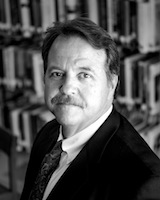| ||||||||||||
| Category: Biography |
(requires Adobe Reader)
|
| About the Book | |
|
As one old acquaintance after another greets the returning son, the author examines the many faces that represent lives left in chaos by the man he called his father. Seeking his own deliverance from the memories that still scar him, Randy peels back the scabs covering excruciating and paralyzing pain. Each face triggers a recall of an episode from a past divided into two worlds: the world of normalcy that Randy craved and sometimes escaped to, and the world where alcoholism and madness turned deadly in an instant. Darker paths of escape emerged as the tortured boy joined his friends reveling in the torture of animals, chopping and hacking away at living creatures just to watch them die. In the midst of his mother's silent seduction, the author also learned that men sometimes kill not only animals, but their wives as well. As the book concludes, Randy wonders if suicide is the only means of escaping the pain of his life. He also begins to realize that redemption and forgiveness may forever be elusive--if not impossible--even for those most determined to embrace them. Redemption lies in the recognition that, in too many ways, we are our parents' children. While we may suffer under their example when we are young, we can either become them as we grow old or choose to leave a legacy of our own.
|
|
| About the Author | |
 |
A native of Mechanicsville, Virginia, James Randolph Jordan began his writing career as a journalist for a human interest magazine. In the late 1990s, his work turned toward a more personal nature when he began writing short stories chronicling his childhood experiences of poverty and abandonment. Most recently, he has been invited to present public readings of his short stories in Philadelphia and Los Angeles. James Randolph Jordan currently teaches at Neumann University in Aston, Pennsylvania. |

